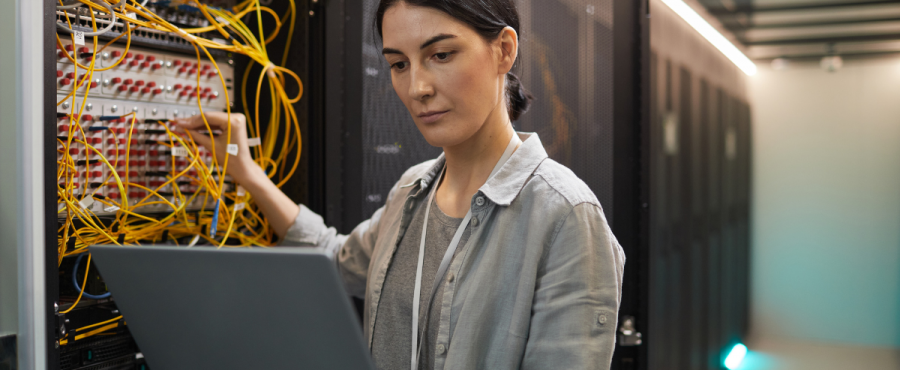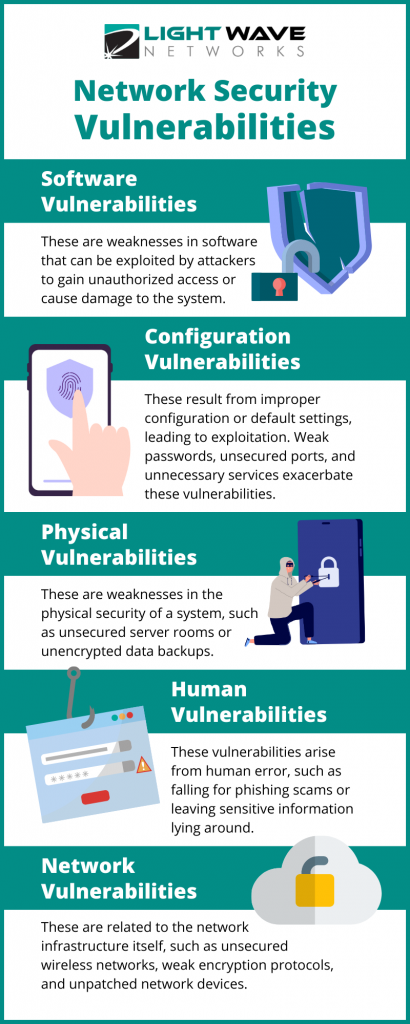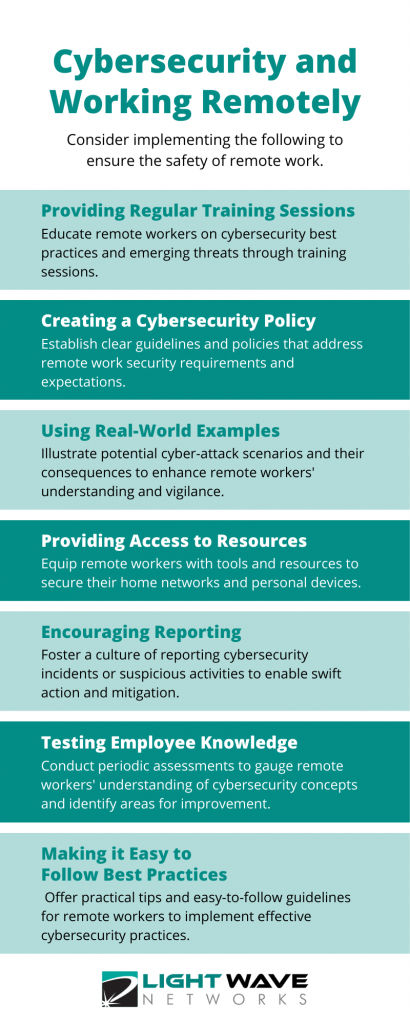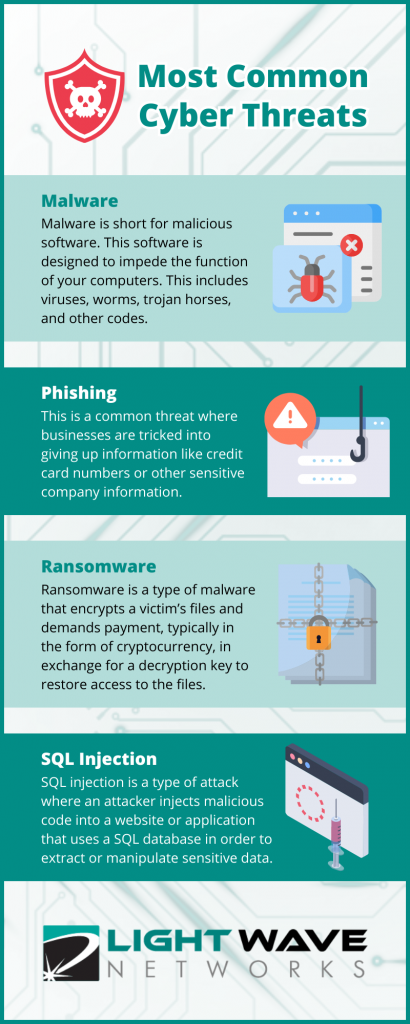Category Archives: Data Centers
About Network Vulnerability
Network vulnerability is a weakness or flaw in a computer network system that can be exploited by an attacker to gain access to sensitive data or information. There are many vulnerabilities that a business should be aware of. These exist in the hardware, software, and configurations of the internet systems. Having a vulnerable network could lead to many complications for businesses that want to protect their information from cybercriminals. The consequences of data infiltration on a business could be drastic, which is why our backup and disaster recovery business is here to detail more about the subject in the following article. Continue reading below to learn more.
Types of Vulnerabilities in Network Security
Since businesses and their networks are quite complex, there are many different kinds of vulnerabilities that they should understand. As an experienced hyper-converged data center, LightWave Networks is here to help you understand what the different kinds of vulnerabilities are. Some of the most common include the following:
- Software vulnerabilities: These are weaknesses in software that can be exploited by attackers to gain unauthorized access or cause damage to the system.
- Configuration vulnerabilities: These occur when a system is not properly configured or is using default settings, leaving it open to exploitation. This is most commonly reflected in weak passwords, unsecured ports, and unnecessary services running on the system.
- Physical vulnerabilities: These are weaknesses in the physical security of a system, such as unsecured server rooms or unencrypted data backups.
- Human vulnerabilities: These vulnerabilities arise from human error, such as falling for phishing scams or leaving sensitive information lying around.
- Network vulnerabilities: These vulnerabilities are related to the network infrastructure itself, such as unsecured wireless networks, weak encryption protocols, and unpatched network devices.
More About Network Security Threats and Vulnerability
Perhaps the most important kind of network vulnerability concerns that our New Jersey cloud hosting business notices that businesses have to face has to do with their network infrastructure. This is because most of a business’s data and information is stored on these networks, including their customers’ information in some cases. Network security helps protect this information from unauthorized access, theft, and misuse. Also, a data breach or cyber attack can erode customer trust and damage a company’s reputation. Network security helps maintain customer trust by protecting sensitive information and preventing data breaches.
More About LightWave Networks
LightWave Networks is a colocation data center located in many locations across the United States that are dedicated to helping our customers with everything that has to do with data management and security. This includes Dallas VPS servers, Dallas cloud hosting, and New Jersey dedicated servers, among many others. Contact us today to learn more about colocation hosting pricing or about more vulnerabilities in network security.
Related Readings
About Remote Work Security
Over the past few years, many businesses have been increasingly embracing remote work as a way to provide employees with greater flexibility and improve productivity. However, the COVID-19 pandemic accelerated this trend as many businesses were forced to shift to remote work to comply with social distancing guidelines. Now, remote work has become more popular than ever before, with many businesses planning to continue offering remote work options even after the pandemic ends. Remote work has also opened up opportunities for businesses to tap into a global talent pool and reduce overhead costs associated with physical office space. However, remote work is not without its own challenges. One of the most important challenges for businesses that offer remote work is questions relating to cybersecurity and how to implement this with new employees. In the following article, our hyper-converged data center will explore what remote work security in the age of remote work means.
Remote Work and Cybersecurity
As more workers transition to remote jobs, they use more of the resources they have at home to conduct their jobs. For example, home networks and personal devices may not have the same level of security as their counterparts in the corporate world. This is detrimental to remote work security and makes them more vulnerable to cyber-attacks and other cybersecurity threats. Further, remote workers also tend to use cloud-based applications and services, which can expose sensitive company data to new risks. It is much easier to threaten a business through its remote workers and their technology rather than a business’s systems that are more prepared to handle cybersecurity threats. This challenge is the heart of the dilemma between remote work and cybersecurity.
Cybersecurity and Working Remotely: What to Understand
To make sure that businesses that utilize remote work understand how to make this kind of employment agreement as safe as possible, it is important to understand that remote workers need to be trained in cybersecurity and how to apply important concepts to their everyday work life. Our New Jersey dedicated server provider would like to point out that this means implementing the following:
- Providing regular training sessions
- Creating a cybersecurity policy
- Using real-world examples
- Providing access to resources
- Encouraging reporting
- Testing employee knowledge
- Making it easy to follow best practices
As a dedicated backup and disaster recovery business, we would recommend using professional services to handle your business’s online and network security. Since we specialize in this, it would be beneficial for businesses to rely on the experience of a Dallas cloud hosting and colocation business. Like other outsourced services, having the expert eye of a business that understands the ins and outs of cybersecurity helps greatly with what your business is looking for, allowing you to focus on what is more productive for your business than its cybersecurity.
More About LightWave Networks
LightWave Networks is a data center management and colocation business that is here to make sure that our clients receive the best care and attention when it comes to their data management and colocation needs. When it comes to working from home security and overall business security, LightWave Networks and our New Jersey cloud hosting professionals are some of the best in the business. Contact us today to learn more about colocation hosting pricing and the rest of what our experts could offer you with our Dallas VPS servers and more about remote work security.
What Are the Different Types of Cyber Threats?
There are many different types of cyber threats that your businesses should be aware of. There is nothing that highlights the need to be aware of cyber threats as a business more than the fact that most of a business’s operations and documents are stored on computers or on the internet. Business owners may also be shocked to discover that there are many different types of cyber threats and several different ways that you could protect your business from them. To learn more about the types of cyber threats that you should be aware of, continue reading below from our hyper-converged data center.
Most Popular Kinds of Cyber Threats
As mentioned above, there are many different kinds of cyber threats that businesses need to be aware of. Our Dallas and New Jersey cloud hosting professionals describe some of the most common ones for your awareness.
- Malware – Malware is short for malicious software. This software is designed to impede the function of your computers. This includes viruses, worms, trojan horses, and other codes.
- Phishing – This is a common threat where businesses are tricked into giving up information like credit card numbers or other sensitive company information.
- Ransomware – Ransomware is a type of malware that encrypts a victim’s files and demands payment, typically in the form of cryptocurrency, in exchange for a decryption key to restore access to the files.
- SQL Injection – SQL injection is a type of attack where an attacker injects malicious code into a website or application that uses a SQL database in order to extract or manipulate sensitive data.
How to Protect From Cyber Attacks
To protect against cyber attacks, businesses should implement a multi-layered approach that includes measures such as using strong passwords and two-factor authentication, keeping software up to date, training employees, using encryption, backing up data, limiting access, and monitoring network activity. It’s also important to regularly review and update security policies and procedures, conduct regular vulnerability assessments, and have a comprehensive incident response plan in place. Additionally, businesses should consider working with a cybersecurity expert or managed service provider to ensure they have the most up-to-date protection and can quickly respond to any threats that may arise. By taking these steps, businesses can better protect themselves against cyber attacks and minimize the risk of data breaches, financial losses, and reputational damage.
How Managed Network Services Help With Cyber Attack Protection
Cyber attack protection is best overseen by businesses that are dedicated to backup and disaster recovery like LightWave Networks. Businesses like ours are much more experienced with network security monitoring, which means that they are specialized in monitoring all of your systems while your business is doing what is best for it. A colocation and managed network provider like our business makes an effort to continuously scan your systems to detect any vulnerabilities in your network. Businesses like ours provide the best cybersecurity techniques to prevent hacking and other cybersecurity threats.
More About LightWave Networks
Aside from detailing the different types of cyber threats and what you could do to prevent them, LightWave Networks provides services around the United States like Dallas cloud hosting, New Jersey cloud computing, New Jersey dedicated servers, and Dallas VPS servers, among many others. Contact our business today to learn more about colocation hosting pricing and beyond.
About IT Infrastructure for Small Business
With more businesses than ever relying on the internet and online systems to store and monitor information related to No matter the size and scope of your business, you are going to need some degree of IT infrastructure and data storage solutions. There are many benefits to IT infrastructure, including the need for easy access to important documents, employee information, and customer information. In recent years, the introduction of cloud servers and computing has made small businesses much more technologically savvy and even dependent. If there is one thing that your business is missing, it is understanding the benefits of IT infrastructure for small businesses and the different options available to you. To learn more about this topic, continue reading below to hear from our server outsourcing business and professionals.
Read More







